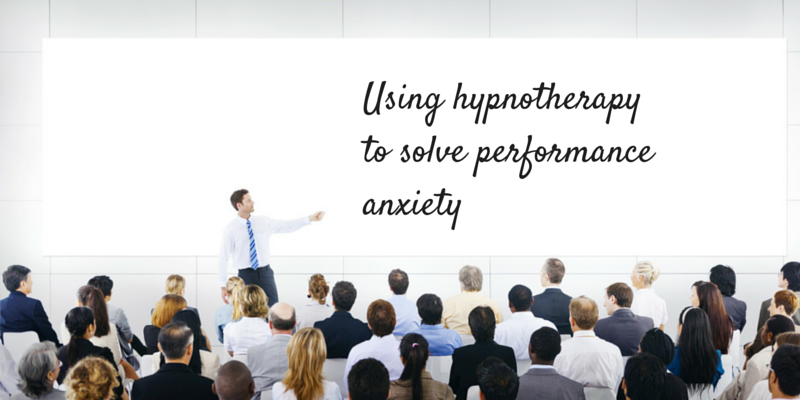The Power of The Hippocampus
What’s a hippocampus? Psychologists know that it’s a part of the brain, and that it got its name because it’s shaped like a seahorse. This is true, but there’s more. As it turns out, the way the hippocampus got its name tells us much about what it is capable of, and what it does for us.
While it’s true the hippocampus of the brain is shaped like a seahorse, the seahorse we know in today’s world are not the original “hippocampus” creatures.
The hippocampus of myth
The hippocampus from which the sea horse borrows its name was a mythical creature, with the head of a horse and a tail like that of a fish. Poseidon, the Greek god of the sea, storms, and earthquakes, rode through his watery realm of waves, on the backs of these creatures. In some depictions, hippocampus power was vividly displayed as two of them pulled Poseidon’s chariot.
Poseidon was also the god of horses. It is said that he created horses out of the ocean waves, in an effort to create the most beautiful animal on earth. His ulterior motive was to make these horses his loyal followers. Being created from ocean waves confers upon the hippocampus the power and beauty of the sea, as well as a connection to gods such as Poseidon, and other mythical creatures, including the sea nymphs. Poseidon and the sea nymphs were said to send out a hippocampus to rescue drowning people.
In general, these beautiful creatures were known to be trustworthy, although the particulars of their lives were not broadcast widely. They weren’t really secretive, just private. They were considered to be good omens by all whose lives were ruled, or even touched, by the sea. You can read more about the hippocampus and its role in mythology here.
The sea of emotions is every bit as deep and mysterious as the realm of Poseidon and the mythical hippocampus. In fact, we can draw parallels between the hippocampus of the sea, and the part of the brain, which in fact, is largely responsible for the way we respond to emotions.
The hippocampus of mind
In the human brain, the seahorse-shaped hippocampus is part of the limbic system, and is therefore responsible for regulating emotions and memories. The hippocampus serves as a storage area for memories as they are formed, and places new experiences into a context in relation to past experience and potential future experience. When it works properly, memories move from the hippocampus to the cerebral cortex, where decisions can be made about what action to take and then sent on to be stored as long-term memories.
Much like Poseidon is usually seen with more than one hippocampus, the human brain has more than one, too. Our brains have four hippocampi, two in each hemisphere of the brain, located just above each ear and the temporal lobe. The hippocampus is obviously a very important part of the brain, and it has a unique characteristic that many find surprising.
The hippocampus is one of the few places in the human body where new neurons can be produced. That means, even when the hippocampus is damaged, it can be healed! Could this be the universe’s way of giving back to the hippocampus in return for the sea rescue role it played in mythology.
The hippocampus in hypnotherapy
The hippocampus plays an enormous role in the dynamics of the mind as we see it in hypnotherapy. Because it is the place where memories are formed, it is also the place where traumatic memories get “stuck.” When a person experiences trauma, shock takes over, and the experience is “frozen” in the hippocampus without an accurate context present is conflated with past and perceived threats can be confused with past trauma.
A feedback loop forms when a person experiences trauma. The amygdala is the parts of the brain that sets off “alarm bells.” They alert a person that something is going wrong, and send those messages to the hippocampus. The traumatic memory gets caught in the hippocampus deprived of context that provides an elevation: is this happening now or is it a flashback? To the traumatized person, it seems that disturbing events that occurred years ago are still taking place in the present moment.
The result of this is reflected in much of what brings our clients to hypnotherapy. When people cannot process traumatic memories, they suffer everything from flashbacks to destructive behavior patterns. They might also experience dissociation, attention deficit, depression, and memory issues. Studies show that adult survivors of trauma have a loss of up to 18% of neurons and synapses in the hippocampus, damage that results in corruption of thought process and learning, deficits of encoding short term into long term memory, and inability to envision a future different from the past.
Fortunately, however, the hippocampus is the only known region of the human brain which can replicate new neurons. Treatment of PTSD and resolution of early childhood trauma can reverse the damage to the hippocampus, and there is evidence that the hippocampal volume actually increases along with a decrease of PTSD symptoms through the process of neurogenesis.
The magical way that this happens harkens back to the mythical powers of the hippocampus of Poseidon’s day. Neurogenesis within the hippocampus offers the hope of the repairing the memory function through recovering from trauma, much like the hippocampus of old was sent to rescue the drowning.
Heart-Centered Hypnotherapy helps the hippocampus heal
Heart-Centered Hypnotherapy offers therapists the opportunity to help clients heal from trauma by permanently repairing the damage done by disturbing events and the shock that ensues from them. Heart-Centered hypnotherapists guide clients as they regress back to traumatic moments in life, process the emotions that have been locked in the hippocampus, and release them so that they may be placed in context and then move traumatic memories from the hippocampus to the cerebral cortex where thoughtful choices can be made.
Thus, the client replaces old beliefs that were based on the experiences of helplessness, powerlessness, and uselessness with positive affirmations. Heart-Centered Hypnotherapy permits the therapist to guide clients through a process that results in more personal growth and emotional advancement than what might be achieved with years of talk therapy alone.
You may be interested to read more details about his topic in “A Trauma – Weakened Ego Goes Seeking a Bodyguard” by David Hartman and Diane Zimberoff (Journal of Heart-Centered Therapies, 2021, Vol 15, NO. 1 pp27-71) : https://www.academia.edu/4789757/A_Trauma_Weakened_Ego_Goes_Seeking_a_Bodyguard /media/magefan_blog/Journal15-1HartmanTrauma-WeakenedEgo.pdf
Enroll in the Wellness Institute’s Six-Day Hypnotherapy Training and Certification course now, and begin the journey toward assisting your clients in the process of healing from trauma and recovering the power of the hippocampus. It’s highly possible that you’ll earn CEUs while acquiring the amazing new skill news the program offers.
If you’re already a graduate of the Six-Day, maybe it’s time to move deeper into this powerful work with the Advanced Internship, PTI Leadership Training, or Mentors program.








